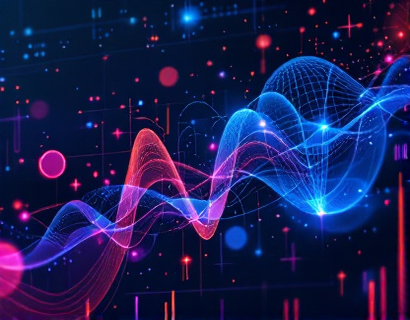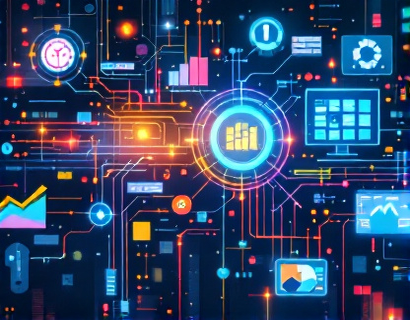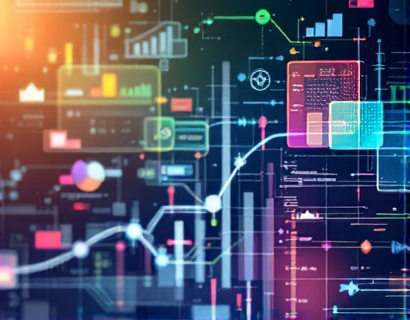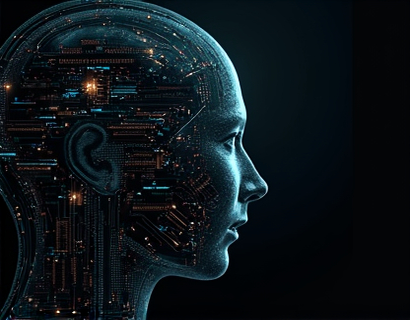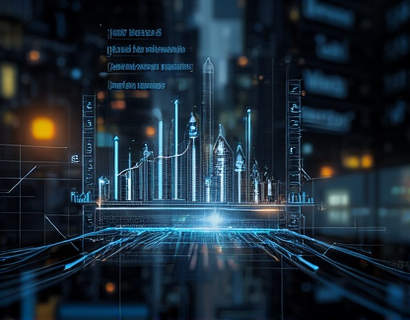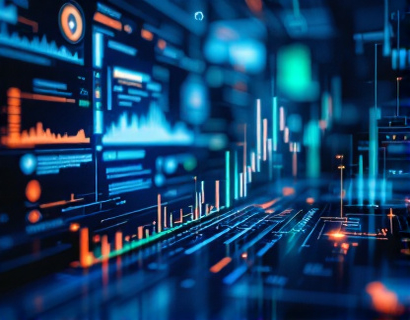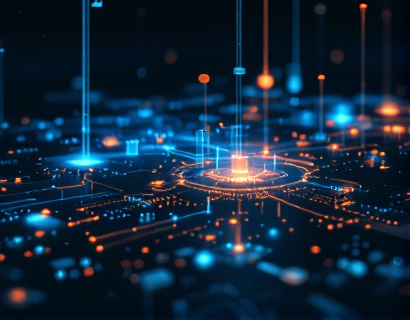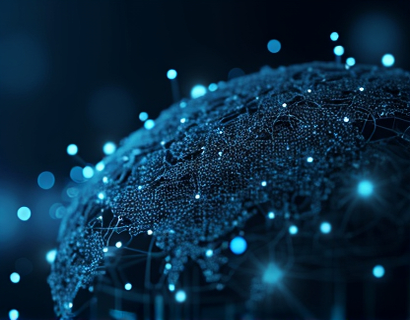AI and Crypto: Transforming Digital Engagement for Next-Gen Ecosystem Experiences
The integration of artificial intelligence (AI) and cryptocurrency is ushering in a new era of digital engagement, redefining how users interact with online ecosystems. This transformative synergy is not just a technological advancement but a paradigm shift that promises to enhance user experiences, security, and accessibility. For tech enthusiasts and investors, understanding the intersection of AI and crypto is crucial for navigating the future of digital platforms.
The foundation of this transformation lies in the unique properties of blockchain technology, which underpins cryptocurrency. Blockchain's decentralized, transparent, and secure nature provides an ideal environment for AI applications to flourish. By leveraging blockchain, AI systems can operate with greater trust and reliability, ensuring that data integrity and user privacy are maintained at all times.
Enhanced Security Through AI and Crypto
One of the most significant benefits of combining AI with cryptocurrency is the enhancement of security measures. Traditional digital ecosystems often struggle with vulnerabilities and breaches, leading to significant financial and reputational damage. AI, with its advanced analytics and machine learning capabilities, can detect and mitigate threats in real-time, providing a robust defense against cyber attacks.
Cryptocurrency, with its cryptographic algorithms, already offers a high level of security. When AI is integrated into the crypto space, it can further fortify these systems. For instance, AI-driven anomaly detection can identify unusual patterns that may indicate a security breach, allowing for immediate action to be taken. Smart contracts, self-executing contracts with the terms directly written into code, can also be enhanced by AI to automatically respond to potential security threats.
Personalized User Experiences
AI's ability to analyze vast amounts of data and derive meaningful insights is a game-changer for user engagement. In the context of digital ecosystems, AI can tailor experiences to individual users, making interactions more relevant and engaging. By understanding user preferences, behaviors, and preferences, AI can curate content, recommend services, and optimize interfaces in real-time.
For example, a digital platform can use AI to analyze a user's interaction history and suggest personalized content or services. This level of personalization not only enhances user satisfaction but also increases the likelihood of user retention and engagement. Cryptocurrency can play a role here by enabling seamless transactions and micro-payments, allowing users to reward content creators or access premium services without the hassle of traditional payment methods.
Decentralized Identity Management
Identity verification and management are critical components of any digital ecosystem. Traditional methods often involve centralized authorities, which can be prone to errors and breaches. AI and cryptocurrency offer a decentralized solution through self-sovereign identity (SSI) systems.
SSI allows users to control their digital identities, storing credentials and personal data on a blockchain. AI can enhance this process by verifying identities through biometric data and behavioral patterns, ensuring that only authorized users access the system. This not only improves security but also provides users with greater control over their personal information. Cryptocurrency can facilitate transactions within these systems, enabling users to monetize their data or access services on a pay-per-use basis.
Fractional Ownership and Tokenization
Tokenization, powered by blockchain, allows for the fractional ownership of assets, a concept that is revolutionizing various industries. AI can optimize this process by analyzing market trends, assessing asset value, and automating the tokenization and trading of assets. This combination enables more people to invest in high-value assets, such as real estate or art, by breaking them down into smaller, tradable tokens.
For instance, a piece of art can be tokenized, with each token representing a fraction of ownership. AI can analyze the art market, predict trends, and adjust the token prices accordingly, making the investment process more transparent and accessible. Cryptocurrency ensures that these transactions are secure, fast, and cost-effective, removing barriers to entry for a broader audience.
Smart Cities and IoT Integration
The convergence of AI, crypto, and the Internet of Things (IoT) is paving the way for smarter, more efficient urban environments. Smart cities rely on a network of connected devices to manage resources, traffic, and public services. AI can process the vast amounts of data generated by these devices, optimizing city operations and enhancing the quality of life for residents.
Cryptocurrency can facilitate transactions between IoT devices, ensuring secure and decentralized communication. For example, smart meters can use cryptocurrency to settle energy transactions directly with consumers, eliminating the need for intermediaries. AI can further enhance this by predicting energy demand, adjusting supply, and optimizing resource allocation in real-time. This integration not only improves efficiency but also promotes sustainability and cost savings.
Decentralized Finance (DeFi) and AI
Decentralized Finance (DeFi) is a rapidly growing sector that leverages blockchain to provide financial services without traditional intermediaries. AI can significantly enhance DeFi platforms by improving risk assessment, fraud detection, and algorithmic trading. AI algorithms can analyze market data, identify patterns, and make informed investment decisions, providing users with better returns and reduced risks.
For instance, AI-driven bots can automate trading strategies, execute transactions at optimal times, and manage portfolios. These bots can also monitor for fraudulent activities, ensuring the integrity of the DeFi ecosystem. Cryptocurrency enables seamless and borderless transactions within DeFi platforms, making financial services more accessible to a global audience.
Challenges and Considerations
While the integration of AI and cryptocurrency offers numerous benefits, it also presents challenges that must be addressed. One of the primary concerns is regulatory compliance. The crypto space is still largely unregulated, and the addition of AI complicates matters further. Ensuring that AI-driven crypto applications comply with existing laws and regulations is essential to avoid legal issues and maintain user trust.
Another challenge is the technical complexity involved in integrating these technologies. Developing robust systems that can handle the scale and complexity of AI and blockchain requires expertise and resources. Additionally, there is the issue of scalability, as both AI and blockchain can be resource-intensive, potentially leading to performance bottlenecks.
Future Prospects
The future of AI and cryptocurrency in digital ecosystems is promising. As technology advances, we can expect more sophisticated AI algorithms and more secure blockchain implementations. The convergence of these technologies will likely lead to the development of new applications and services that we can only begin to imagine today.
For instance, AI-powered virtual assistants integrated with crypto wallets could provide users with personalized financial advice and automate transactions. Enhanced AR and VR experiences, powered by AI and supported by blockchain, could create immersive digital environments for entertainment, education, and commerce. The potential for innovation is vast, and those who embrace this synergy will be at the forefront of the next digital revolution.
In conclusion, the integration of AI and cryptocurrency is transforming digital engagement, offering enhanced security, personalized experiences, and decentralized solutions. For tech enthusiasts and investors, understanding and investing in this space can provide significant opportunities. As the ecosystem continues to evolve, staying informed and adaptable will be key to thriving in the digital age.



